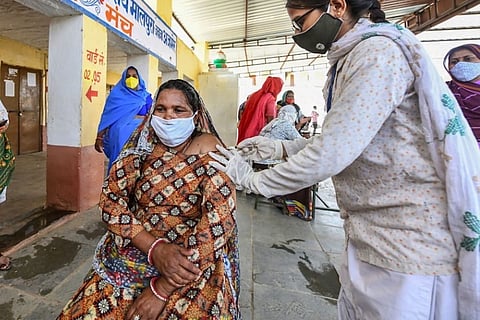

According to Boston Consulting Group’s (BCG) latest survey, 58% of consumers think their income will be lower in the next six months than pre-COVID levels – higher than 44% in the last survey conducted over July last year. Similarly, the sentiment about spending has been impacted. The latest round had 51% of consumers expecting their spending over the next six months to be lower compared to 40% in the last round. The survey was conducted between May 23 to May 28, 2021, among 4,000 consumers and covered all socio-economic groups across urban and rural India.
The survey indicated that consumer anxiety is at its highest levels since the outbreak of the pandemic with the less affluent most sceptical about the economic outlook, health concerns prevalent across, and daily lifestyles impacted more in urban/affluent India. Income and consumer spending sentiment was low, reversing improvements noted in the second half of 2020. Further, the decline in income sentiment is steepest among the less affluent/small towns, the survey found.
Some categories have continued to show positive spend sentiment e.g. essentials, health, at-home entertainment. “There is an impending sense of uncertainty, however, we have observed certain positive messages, too. The spending sentiment has not been impacted similarly across categories. Essentials, health, in-home entertainment continue to be winners. Some of the discretionary categories, however, have been negatively impacted,” said Nimisha Jain, Managing Director and Partner, BCG India.
The expected cutbacks on spending on travel, OOH (out-of-home) entertainment and vehicle purchases are high while spending sentiment on personal care and apparels remains low in the recent wave. The survey noted that there has been unabated growth in the adoption and engagement of social commerce and healthier food choices. The adoption and engagement of digital commerce (online retailers, digital wallets), entertainment (free apps like YouTube, Hotstar, paid OTT) and education (online classes) are sustaining at new highs.
Rural India more willing to take the vaccine
There has been a significant increase in the willingness to take vaccines post the second wave – especially in small towns and rural areas which had shown high levels of hesitancy/ indifference earlier. 78% of the eligible consumers in large towns said that they were very willing to take the vaccine now – compared to 62% earlier. The same percentage for rural India stands at 63% now compared to 41% earlier. However, the survey noted that a sizable chunk of the ‘willing’ population is waiting to get vaccinated as the inability to get slots and technological challenges pose the biggest barriers in urban and rural India respectively.
“Now that we have been into the crisis for over a year, the shape of a new normal for consumer behaviour is also beginning to emerge. Many of the newly adopted behaviours ranging from social commerce, online shopping, digital content/ payments – have continued to stick. However, others like ‘do it yourself’ regimes, online doctor consultations have shown high sensitivity to the pandemic situation,” said Kanika Sanghi, Lead, Centre for Customer Insight for BCG India.
BCG’s COVID-19 consumer sentiment research is based on a global survey that is currently covered in both developed and emerging markets. It is fielded in waves to provide a longitudinal view of consumer sentiments about the coronavirus pandemic, and changes in consumer consumption behaviour. BCG’s current findings are reported from Wave 6 in India.